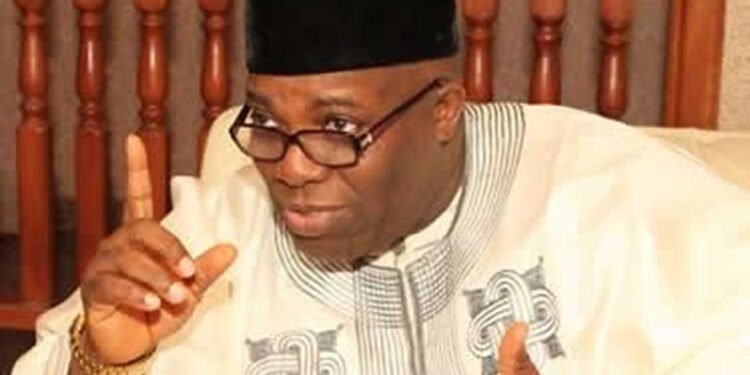Former presidential spokesperson, Doyin Okupe, said the handling of the police invitation extended to President of Nigeria Labour Congress (NLC), Comrade Joe Ajaero may have set a bad precedent as it subtly suggests that certain privileged people are above the law.
Okupe said this in an X post on Friday.
Daily Sun reported that Ajaero was at the headquarters of the police’s Intelligence Response Team (IRT) in Abuja on Thursday following his invitation for questioning over allegations of criminal conspiracy, terrorism financing, treasonable felony, subversion and cybercrime.
Ajaero, who was accompanied by a retinue of lawyers, including Femi Falana SAN, Maxwell Opara and Deji Adeyanju, left the IRT’s office barely an hour later after writing his statement.
While encouraging Ajaero to honour the police invitation, the NLC had threatened to shutdown the country if he is arrested or detained.
Okupe said, “It is good that the Ajaero, NLC President, and police face off has ended uneventfully. But we may have set down an undesirable precedence with the subtle implications that certain privileged people are above the law.”
He described the threat of a nationwide strike by the NLC leadership as “unwarranted”.
“The impression should not be given that those who are in the leadership of some critical organisations in the country are above the law.
“For instance if for any reason the President of the NMA or the NBA were to be invited by the police, even for reasons which members of such organisations may consider as dubious or high handed, and then doctors or lawyers in the country will threaten the nation with a nationwide strike during which innocent citizens will be subjected to undeserved hardship.
“As a nation we must decide whether we want to be under the rule of law, no matter how tenuous that may be, or the rule of the mob,” Okupe said.
He urged the police to consider a chance of approach in dealing with high-net worth individuals.
“The police may in some circumstances, adopt the approach to visit some high net-worth people or people not directly involved in criminality, in their residences or places of work.
“It does not demean the police in anyway.
“The Nigerian Police must avoid situations whereby in the discharge of their lawful duties, they give the impression of an oppressive force instead of a friendly and a professional one,” he said.
Daily Sun











